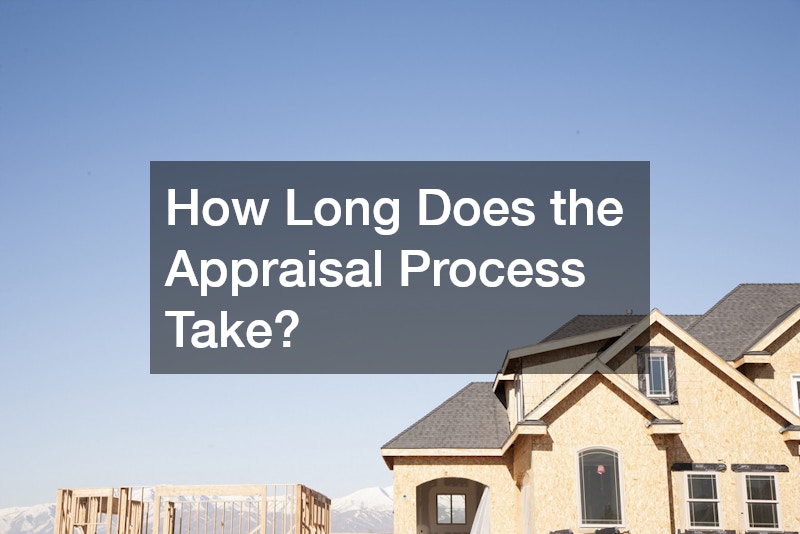Home appraisals are crucial steps in buying or selling a property. Understanding what to expect from home appraisal companies can make the process smoother and less intimidating. This article will address common questions and concerns about home appraisals.
What is the Role of a Home Appraisal Company?
Home appraisal companies play a critical role in determining a property’s fair market value. These companies employ licensed professionals known as appraisers who evaluate various factors influencing a property’s worth. By doing so, they ensure that lenders, buyers, and sellers accurately understand a property’s value, ultimately reducing the risk of overpaying or undervaluing assets.
The primary goal of a home appraisal company is to provide an unbiased opinion of a property’s market value. This evaluation is essential for lenders as it impacts the amount of mortgage they are willing to offer. Additionally, accurate appraisals help buyers and sellers make informed financial decisions during negotiation, contributing to smoother, more equitable real estate transactions.
In essence, home appraisal companies act as intermediaries, protecting the interests of all parties involved in the real estate transaction. They offer an objective assessment based on standardized industry practices and local market trends, contributing significantly to the overall stability and transparency of the real estate market. Their evaluations also help ensure compliance with lending regulations and industry guidelines.
How is a Home’s Value Assessed?
Appraisers consider various factors when assessing a home’s value, including the property’s location, size, condition, and the sale prices of comparable properties in the area. Location is paramount, as homes in desirable neighborhoods typically have higher values. Furthermore, the size of the property, measured in square footage, also plays a crucial role in its valuation, especially when compared to similarly sized homes nearby.
In addition to location and size, the home’s condition significantly affects its appraised value. Appraisers meticulously examine the property’s structural integrity, age, and any recent updates or renovations that might enhance its market appeal. Features such as modern appliances, updated HVAC systems, and high-quality finishes can contribute positively to a property’s overall worth.
Another critical factor appraisers consider is the sale prices of similar properties, or “comparables,” in the vicinity. Appraisers can contextualize a specific property’s attributes within the larger market framework by analyzing recent comparable sales. They also consider differences in amenities, lot size, and condition to adjust values accordingly and arrive at a fair estimate.
What Should You Prepare for the Appraisal Process?
Before an appraiser arrives, homeowners should ensure their property is neat and well-organized, presenting it in the best possible light. Cleaning and repairing any visible damage demonstrates care and maintenance, which may positively impact the appraiser’s evaluation. It’s a good opportunity to make a lasting first impression; even small touches like fresh paint or trimmed landscaping can enhance the home’s visual appeal.
Preparing a collection of pertinent documents can also help streamline the appraisal process. Homeowners should gather records of recent renovations, property tax statements, and any relevant permits that illustrate enhancements to the property. These documents validate improvements and demonstrate the homeowner’s investment in maintaining and increasing the home’s value.
Additionally, clear communication with the appraiser can facilitate a smoother appraisal experience. Homeowners should highlight any unique features or upgrades that might not be immediately apparent, such as energy-efficient systems or custom landscaping. Being available to answer questions or clarify details can help the appraiser capture a complete and accurate picture of the property.
How Long Does the Appraisal Process Take?

The actual property assessment conducted by the appraiser typically takes a few hours. During this time, the appraiser conducts a thorough inspection of the property and collects necessary data. Once the on-site evaluation is complete, an appraisal report will be compiled, which will analyze the gathered information and compare it to local market trends.
Typically, homeowners can expect to receive the complete appraisal report within a week, though this timeline can vary. Factors such as market conditions and the complexity of the property being appraised may influence how quickly the report is finalized. For example, an unusually large or uniquely designed home might require more time for a comprehensive assessment, while a more straightforward property might expedite the process.
Effective communication with the appraisal company can help clarify the expected timeline for the report’s completion. By understanding that the process involves meticulous research and analysis, parties involved in the transaction can approach the waiting period with realistic expectations. This knowledge can be especially reassuring in time-sensitive real estate transactions, ensuring everyone remains on the same page.
Engaging with a home appraisal company is an integral part of buying or selling a home. You can manage this process with greater confidence and effectiveness by understanding their role, how they assess property value, how to prepare, and what timeline to expect. Moreover, being informed about factors appraisers consider and preparing adequately can lead to a smoother, more transparent real estate transaction for all parties involved, ultimately fostering a more positive experience.
